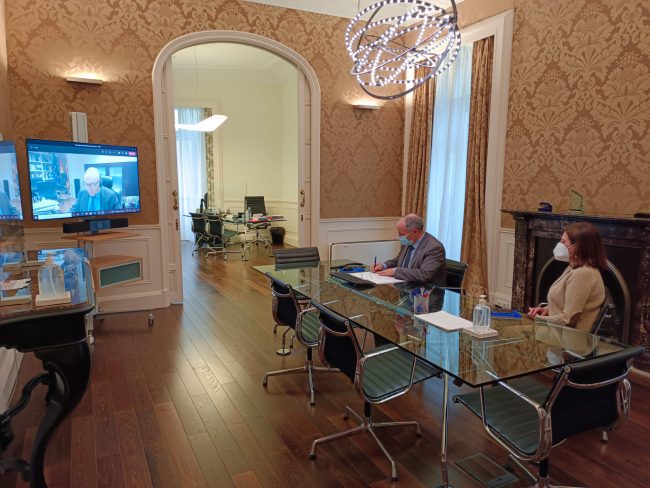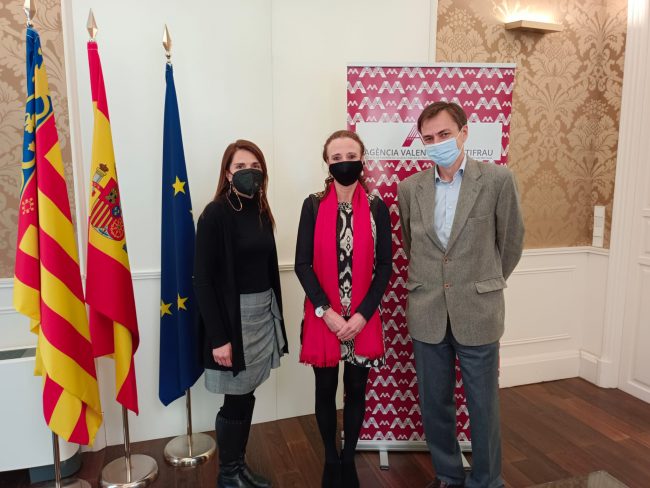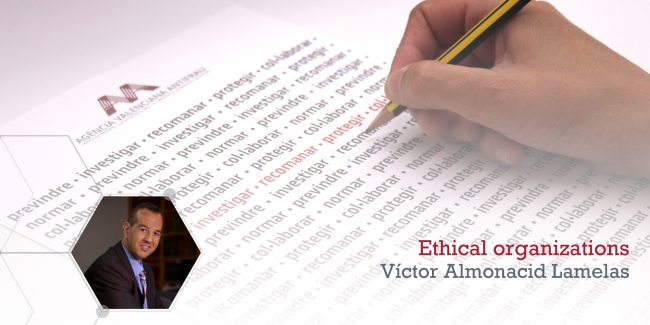“The first step in the evolution of ethics is a sense of solidarity with other human beings.” (Albert Schweitzer) An ethical organization is one that is designed so that its structure and operation fully correspond to the general interest, as well as to the principles of legality, objectivity, transparency, effectiveness and efficiency. In addition to the above, and also consequently, in an ethical organization, ethical public performance, the culture of public integrity and the development of the values that are its own are encouraged, projecting those values abroad. We highlight ten elements of ethical organizations: 1.- Well-formed electronic procedures. That the inner workings of an organization should be electronic is something that no longer offers any debate at the present time. This type of operation would cover both the procedures and the rest of the functional processes of the entity. The previous work of cataloguing, simplification and procedural reengineering is key. Debureaucratization is essential. From there, the electronic files are composed of electronic documents signed and / or sealed electronically, formed through electronic actions carried out within a reliable, traceable and traceable system that prevents or hinders to the extreme the possibility of cheating. All this finally ends in an electronic link that must comply with the legal requirements, and on which in turn the transparency and historical memory of the institution will be supported. 2.- Quality electronic services. This point refers to the external part of the electronic administration, referring mainly to the adequate configuration of the platforms for public use, although other instruments such as social networks or telematic attention could also be included. These platforms must allow an effective, intuitive, simple, effective and accessible use. Documents that are already in the possession of the Administration should not be requested, nor should data verifiable by it. In general, bureaucracy should be reduced as much as possible by incorporating responsible statements as far as possible. Excessive bureaucracy is a form of corruption. Priority should also be given to the use of identification systems, unless signature was legally essential. In addition, the various services must ensure compliance with national safety and interoperability schemes. 3.- Automation of simple processes. At this time, a certain degree of automation of certain actions would already be desirable, thus generating an improvement in agility and efficiency. Regulated procedures and acts allow for greater incorporation of this type of mechanism, given that they do not involve a value judgement. The main tool of automation is the electronic seal, especially the organ seal that is automatically stamped in place of the electronic signature of the employee or authority. The procedures, actions and documents to which it will apply must be identified in advance. Beyond the seals (entity, organ, time, etc …), the extraprocedimental operation of the entity must progressively incorporate algorithms, as an advanced programming tool and instrument of help in management, guaranteeing in its case the adequate human supervision especially in cases in which the weighting of the circumstances is necessary. 4.- Measures for the legalization of public procurement. Public procurement has been and still is one of the main focuses of corruption. Before going to any type of tender, the need report must be made. Unless otherwise justified in a specific case, a service that already corresponds to an internal department may not be contracted externally. Competition should be promoted, even in minor contracts, and at least a reliable record of all actions should remain in these contracts. Such information shall be published in accordance with the provisions of the Act. Greater planning will in any case avoid the proliferation of certain minor contracts that correspond to periodic and repetitive needs, and therefore foreseeable. It is also advisable to use so-called rationalization systems, such as purchasing centers or dynamic purchasing systems. The specifications of administrative clauses will contemplate the vicissitudes related to the execution of the contract, thereby reducing the conflict and judicialization, especially in large concessions and long-term contracts. Splitting and, as far as possible, modified splitting should be avoided. All phases of the life of a contract must be carried out through electronic means, especially the tender through an approved public or private platform that allows the encrypted presentation of the offers, but also the preparation, formalization, the administrative part of the execution and the invoicing. In a more advanced stage, the archiving and recording of all performances can be done through the use of blockchain technology. 5.- Active safeguarding of the rights of citizens. The legal system recognizes individuals, as such, rights of different kinds. After the seamless assurance of the free exercise of fundamental rights and, after these, those of democratic and social participation, the degree of development of the so-called administrative rights is relevant as a thermometer of an advanced society. The right of access to information is particularly important in our area. The Administration works for and for citizens. Users should not be left unattended in any way. The offices of citizen attention are currently called “assistance”, nomenclature that must be applied in its literal sense. Ex officio actions should not only be reserved for sanctioning procedures, but also for the recognition or authorization of pre-existing rights of persons who do not request them. Without prejudice to what is already indicated in the point dedicated to the tender, in general the legal procedures that correspond in each case must be adequately articulated and that ensure the concurrence and selection in conditions of publicity and equality (subsidies, selective processes, contracts, authorizations …) . Finally, the most modern dimension of people’s rights must be focused on social justice and sustainability (economic and environmental). 6.- Second generation transparency: open data. Publishing the information established by the Law is no longer enough. In any case, an organization is not transparent only because it has a portal, and much less if it is not fully electronic, accessible, interoperable and if the information it contains is not reusable. At this point we must mention again the right of access to information, the safeguarding of…




